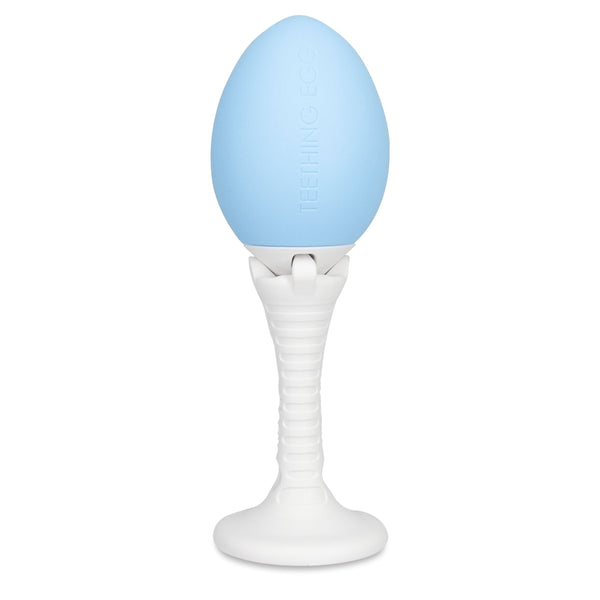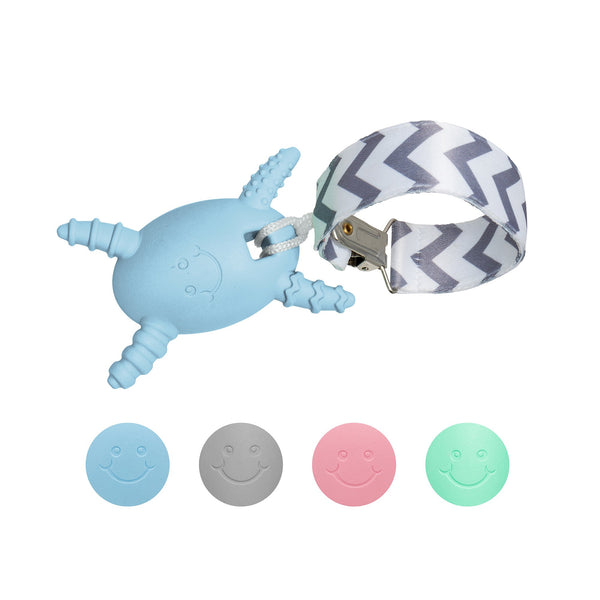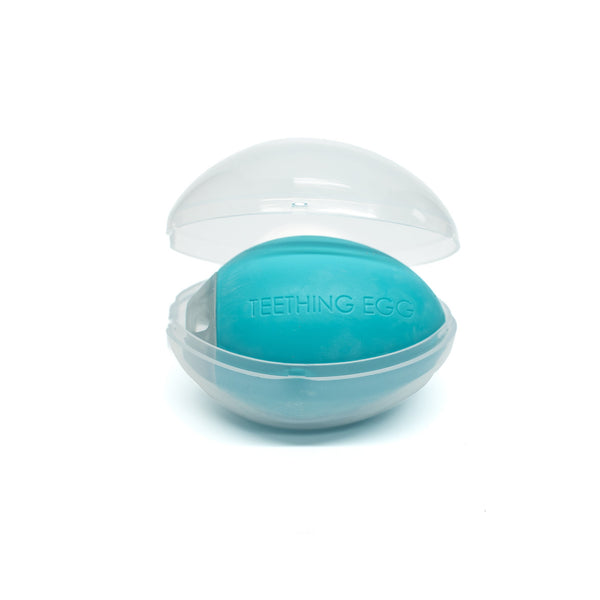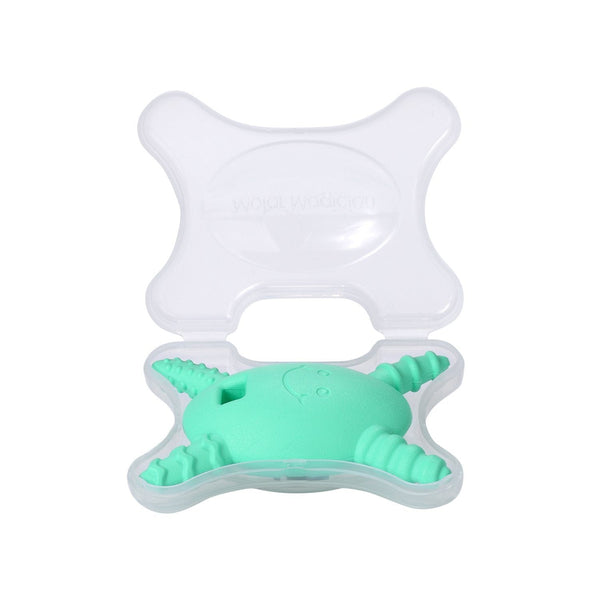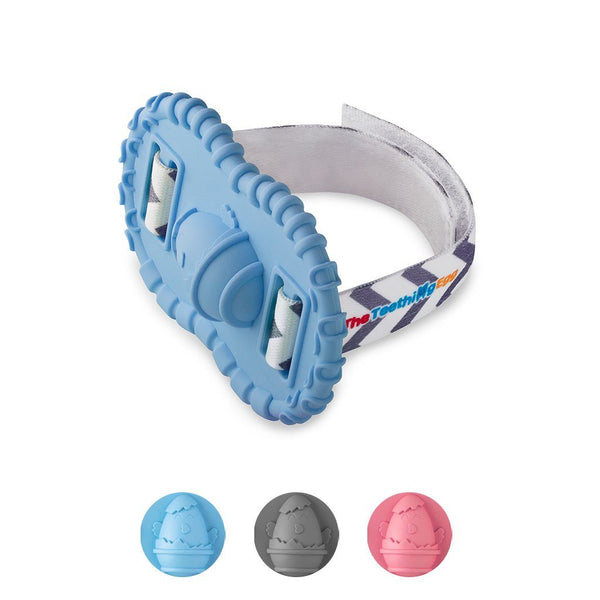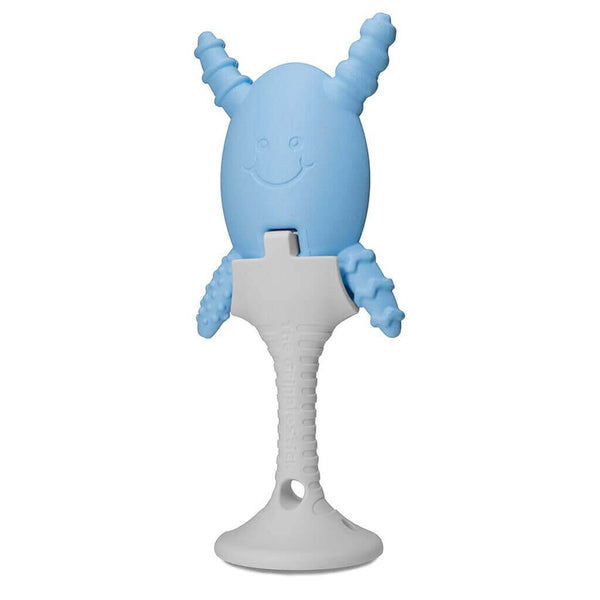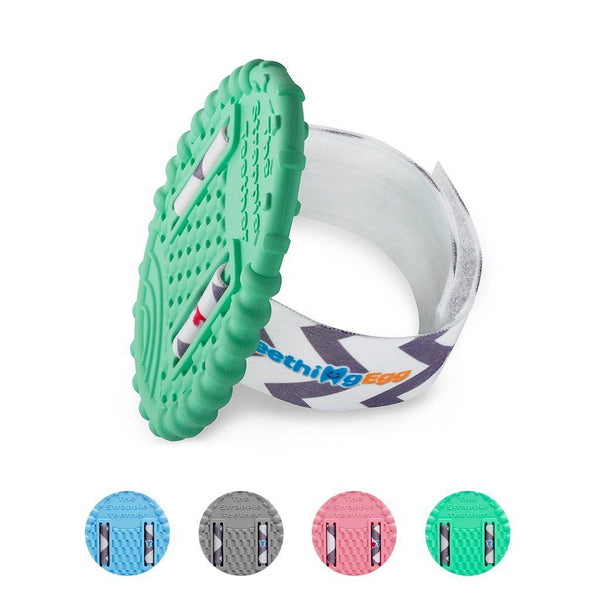One of the many exciting and challenging milestones in a baby's early development is the eruption of their first set of teeth. Typically, this journey begins around the fourth month of life and continues through the seventh month. During this period, babies usually start to grow their central incisors, which are the two front teeth in the lower jaw. While teething is a natural process, it can be a trying time for both parents and babies. In this comprehensive guide, we will explore what parents should expect during the teething journey, how to make this process as smooth as possible, and how to provide the best care for your baby's precious teeth. We will also discuss what is considered normal and when to seek professional guidance in case something goes wrong.
Month 4-7: The Beginning of the Teething Journey
Teething typically begins around the fourth month of a baby's life, although this timeline can vary from child to child. Some infants may start teething as early as three months or as late as seven months. However, the central incisors, the first set of teeth to appear, commonly emerge during this period.
What to Expect:
1. Irritability and Discomfort: The teething process can be uncomfortable for babies. As the central incisors begin to break through the gums, babies may experience irritability, restlessness, and fussiness. This is because the pressure from the emerging teeth can cause soreness and discomfort in the gums.
2. Excessive Drooling: Teething often triggers increased salivation. Babies may drool more than usual, leading to wet clothing and chins. Parents can use bibs and gentle wiping to manage the excess drool.
3. Chewing and Biting: To relieve the discomfort, babies will often chew on various objects, including their own fingers, toys, or teething rings. This is a natural response, and parents can provide suitable teething toys for their baby to gnaw on.
4. Slight Fever: Teething can sometimes cause a mild increase in body temperature, but it's typically not a cause for concern. If the fever exceeds 100.4°F (38°C), consult with a pediatrician to rule out other issues.
5. Disturbed Sleep:Due to discomfort and irritability, babies may experience disrupted sleep patterns during teething. This can be challenging for parents, but it's essential to provide comfort and reassurance.
6. Changes in Appetite: Some babies may show a reduced interest in feeding during teething, while others may seek comfort through nursing or bottle-feeding. It's crucial to be patient and adapt to your baby's individual needs.
7. Gum Swelling and Redness: The gums where the new teeth are erupting may appear swollen and red. This is a normal part of the teething process.
How to Help Your Baby
Supporting your baby through the teething journey can make the process more manageable for both you and your child. Here are some tips to help:
1. Teething Toys: Provide teething toys or rings specifically designed for babies. These can help soothe their gums as they chew on them. Ensure the toys are clean and free of small parts that could be a choking hazard.
2. Chilled Teething Toys: Refrigerate (do not freeze) teething toys to provide cool relief to sore gums. The coldness can help reduce inflammation and provide comfort to your baby.
3. Gentle Gum Massage: Using a clean finger or a moistened gauze pad, gently massage your baby's gums. This can help alleviate some of the discomfort.
4. Teething Biscuits: As your baby starts to eat solid foods, you can introduce teething biscuits or chilled, soft foods like yogurt to provide a soothing sensation for their gums.
5. Pain Relief Options: Consult your pediatrician for safe, age-appropriate pain relief options, such as infant acetaminophen or ibuprofen. Always follow the recommended dosages and guidelines.
6. Comfort and Cuddling: Sometimes, all a teething baby needs is extra comfort and cuddles. Provide reassurance and affection to help your child feel secure.
7. Distraction: Engage your baby in playful activities to divert their attention from the discomfort. Singing, playing with toys, or going for a walk can be effective distractions.
Caring for Precious Teeth
As your baby's first teeth make their appearance, it's essential to start caring for them to ensure a healthy smile in the future. Here are some key steps to consider:
1. Oral Hygiene: Even before the teeth fully emerge, establish a gentle oral hygiene routine. Use a soft, damp cloth or a small, soft toothbrush designed for infants to wipe your baby's gums. This removes bacteria and prepares them for proper brushing when more teeth come in.
2. Toothbrush Selection: When your baby's teeth have fully erupted, usually around the first birthday, transition to a small, soft-bristle toothbrush. Choose a brush with a non-toxic fluoride toothpaste, but use only a tiny smear of toothpaste for infants.
3. Regular Brushing: Start brushing your baby's teeth as soon as they have teeth, and make it a daily routine. Be gentle but thorough, and ensure you reach all tooth surfaces. It's recommended to brush twice a day, ideally after breakfast and before bedtime.
4. Dietary Considerations: Limit sugary snacks and drinks, as sugar can promote tooth decay. Encourage a balanced diet rich in fruits, vegetables, and dairy products that support healthy teeth and gums.
5. Sippy Cups and Bottles: Avoid prolonged use of sippy cups and bottles with sugary liquids like juice, formula, or milk. Encourage your child to drink from a regular cup as they grow.
6. First Dental Visit: Schedule your child's first dental appointment by their first birthday. Early dental check-ups can help identify and prevent potential issues.
What's Normal and What's Abnormal?
While the teething journey can be challenging, it's crucial for parents to differentiate between normal teething symptoms and signs of a problem. Here's a guide to help you understand what's typical and what may be cause for concern:
Normal Teething Symptoms:
1. Irritability and fussiness: It's common for teething babies to be a bit grumpy due to discomfort.
2. Drooling: Excessive drooling is normal during teething.
3. Chewing and biting: Babies use this behavior to relieve gum pressure.
4. Mild fever: A slight increase in body temperature can be attributed to teething.
5. Sleep disturbances: Teething may disrupt your baby's sleep patterns temporarily.
Abnormal Symptoms and When to Seek Help:
1. High fever: A fever exceeding 100.4°F (38°C) should be evaluated by a pediatrician, as it might indicate an infection unrelated to teething.
2. Severe diarrhea or vomiting: If your baby experiences severe gastrointestinal symptoms, it is not related to teething and should be investigated.
3. Rash around the mouth: If a persistent rash appears around the mouth, it may be due to excessive drooling and should be managed with barrier creams.
4. Refusal to eat: If your baby consistently refuses to eat for more than a couple of days, consult your pediatrician.
5. Excessive crying: If your baby's cries are unusually prolonged and severe, or if they appear to be in intense pain, it's essential to consult a healthcare professional.
6. Bleeding or swollen gums: While mild redness and swelling are normal, excessive bleeding or severe gum inflammation should be examined by a dentist or pediatrician.
7. Unexplained diarrhea or vomiting: If your baby experiences frequent, unexplained gastrointestinal issues, consult a healthcare provider to rule out underlying causes.
When to Seek Professional Help
If you notice any of the abnormal symptoms mentioned above, it's crucial to consult your pediatrician or a pediatric dentist. Additionally, if your child's teeth fail to erupt by their first birthday or you have concerns about their oral development, seek professional guidance. Regular dental check-ups and early intervention can prevent potential dental issues and ensure your baby's oral health.
The teething journey is a significant developmental phase in a baby's life, with the central incisors usually emerging between the fourth and seventh months. While this period can be challenging for both parents and babies due to discomfort and irritability, it is an entirely natural process. Understanding what to expect during teething and how to support your baby is essential for making this phase as smooth as possible.
By providing your baby with appropriate teething toys, managing discomfort through gentle methods like gum massage and providing comfort and distraction, you can help your child navigate the teething journey more comfortably. Additionally, caring for your baby's emerging teeth is crucial for their long-term oral health. Establishing good oral hygiene habits early on, limiting sugary snacks, and scheduling regular dental check-ups can set the stage for a lifetime of healthy smiles.
Differentiating between normal teething symptoms and signs of a problem is vital. While some discomfort, drooling, and mild irritability are typical during teething, high fever, severe diarrhea, or other unusual symptoms may require immediate attention from a healthcare professional. By staying informed and attentive, you can ensure that your baby's teething journey is as pleasant as possible and that their precious teeth receive the best care from the very beginning.

